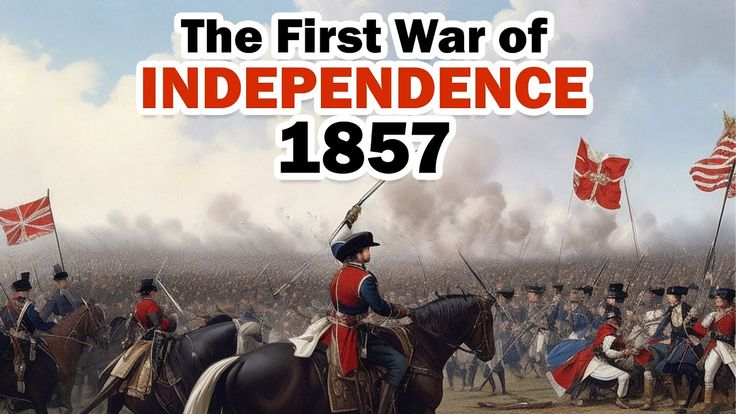History of India & Freedom Struggle : A Journey Towards Independence
The history of India & freedom struggle is a powerful story of courage, resilience, and unwavering patriotism. From the first spark of revolt in 1857 to the final moment of independence in 1947, India’s fight against British colonial rule is one of the most remarkable movements in the world.
British Rule in India: The Beginning
The roots of British colonialism began with the establishment of the East India Company after the Battle of Plassey in 1757. Over time, British influence grew, turning India into a major colony of the British Empire. They exploited India’s wealth, dismantled traditional industries, imposed high taxes, and enforced policies that led to famines and poverty.
The drain of wealth and racial discrimination created deep resentment, sowing the seeds of rebellion that would define the freedom struggle.
.
The First War of Independence – 1857
Often called the First War of Independence, the 1857 Revolt was a significant moment in the history of India & freedom struggle. Though unsuccessful, it marked the first large-scale uprising involving soldiers, peasants, and kings. Notable leaders included:
Rani Lakshmibai of Jhansi
Tantia Tope
Bahadur Shah Zafar
Mangal Pandey
After the revolt, the British Crown took direct control of India, replacing Company rule with formal imperial governance.
The Rise of Nationalism and Social Reform
From the late 19th century, Indian society witnessed a social awakening led by reformers like Raja Ram Mohan Roy, Swami Vivekananda, and Ishwar Chandra Vidyasagar. They promoted education, women’s rights, and eradication of social evils—laying the ideological foundation of national consciousness.
Simultaneously, moderate political leaders in the Indian National Congress began demanding greater participation in governance and voiced concerns over British policies.
Formation of the Indian National Congress
In 1885, the Indian National Congress (INC) was formed to represent Indian voices. Initially moderate in nature, its leaders like Dadabhai Naoroji, Gopal Krishna Gokhale, and Bal Gangadhar Tilak gradually demanded greater rights and reforms. The early 20th century saw a rise in revolutionary activities and calls for Swaraj (self-rule).
The Role of Mahatma Gandhi
A turning point in the history of India’s freedom struggle was the return of Mahatma Gandhi in 1915. His principle of non-violent resistance (Satyagraha) became the foundation of the Indian freedom movement. Major campaigns like the:
Non-Cooperation Movement (1920)
Civil Disobedience Movement (1930)
Quit India Movement (1942)
galvanized the masses across the country. Gandhi united Indians from different religions, regions, and backgrounds under one national cause.
Revolutionary Movements and Other Leaders
While Gandhi advocated non-violence, other revolutionaries took a more radical approach:
Bhagat Singh, Rajguru, and Sukhdev became national heroes for their bold actions against British officers.
Subhas Chandra Bose formed the Indian National Army (INA) and sought international alliances to free India by force.
These efforts kept the flame of revolution alive even as British suppression intensified.
Towards Independence: The Final Phase
The impact of World War II, rising nationalist sentiment, and the weakening of the British Empire led to serious negotiations. In 1947, the Indian Independence Act was passed, resulting in the creation of India and Pakistan on August 15, 1947.
India’s freedom was achieved through decades of struggle, sacrifice, and unity.
🌟 Legacy of the Indian Freedom Movement
Gave rise to a democratic, secular India.
Inspired anti-colonial movements globally.
Set the stage for modern India’s development.
It’s a legacy that every Indian should understand, cherish, and pass on.
The history of India & freedom struggle is not just a tale of battles and protests; it is a lesson in resilience, unity, and the power of collective action. Understanding this history helps us value our independence and honor those who made it possible.
At Vidya Vedas, we believe in spreading knowledge that inspires. Keep exploring more stories and events that shaped India into what it is today.

